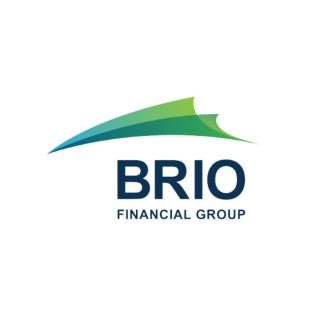
How to Protect Yourself When the Government Won’t
by Brandon Miller on Aug 30, 2019
“Suitable” has always seemed to me like one of those neutral words that you use when you don’t want to say anything mean, but you can’t think of anything nice—like when your five-year-old is so proud of himself for picking out his Spiderman costume to wear to a funeral and you sigh and deem it “suitable.”
Suitable is also at the heart of some contentious government and regulatory standards regarding the financial industry. Knowing about these regulations may keep you from getting financial advice that eats into your savings and benefits the advisor more than you.
Let me explain.
Financial advisors are required to meet a suitability standard. This means that they are only obligated to provide advice about investments that are suitable for you, the investor. It’s perfectly legal for them to recommend one investment over a similar one that’s less expensive. That’s better for them, not for you.
A fiduciary, on the other hand, is legally obligated to always act in your best interest. You therefore never have to worry about their recommendations benefiting them over you.
Many, but not all, financial advisors are fiduciaries. This is where the controversy sets in.
Toward the end of his presidency, Obama tried to help protect consumers with the Dodd Frank rule. This required financial professionals who offered retirement advice to act in their clients’ best interest. Since the vast majority of advisors handle IRAs and other retirement vehicles, this rule would have required that most everyone serving in that capacity become a fiduciary. This could be seen as a big win for consumers.
Enter Trump and an administration that believes fewer regulations are better. They challenged the fiduciary rule and had it overturned in court. Instead, the Securities and Exchange Commission (SEC) has produced a Regulation Best Interest rules package that critics say guts consumer protections by potentially weakening fiduciary standards.
Fearing that these changes could erode investors’ belief in financial advisors and the industry as a whole, the Certified Financial Planning Board of Standards decided to step up and issue a rule that all CFP professionals must act as fiduciaries. But they have pushed back enforcement of their own rules until mid-2020 to give everyone time to implement the new standards.
By now, you may be rolling your eyes and thinking, “Typical bureaucratic red tape mess.” True, but this particular red tape has big implications for your money and future. If no one is protecting you from higher-priced investments, you may be working harder to help your advisor retire than yourself.
So, just who is looking out for you, the investor? Right now, only you (and me, through this article). This is why I suggest that you take the following steps before trusting anyone to provide you with financial advice:
1) Do your research. Ask prospective advisors if they are a fiduciary. If they aren’t, ask what kind of protections you will get with their advice. Also, find out how much experience and what types of expertise they have, as well as how they are rated by financial professional organizations.
2) Follow the money. Commission-based advisors earn their money by, you guessed it, commissions. The more investments they buy and sell for you, the better off the advisor does. This can make their advice less objective. Fee-based advisors don’t have this same incentive since they charge a predetermined, mutually agreed upon fee for their services.
3) Trust your gut. When speaking with anyone you are considering, do you get a good feeling about the person? Do they speak in plain enough language so that you can honestly understand the advice that they’re providing and the rational behind it? Do they seem trustworthy and like someone you can confide in? You’ll be sharing your hopes, fears and dreams with them, so make sure that your financial advisor is someone you like.
As with many other things in life, you have to be your own best advocate when it comes to hiring a financial professional. While there may be many non-fiduciaries who provide good, honest advice, remember that they are not legally obligated to do what is best for you. If you don’t find that suitable, look for advisors who are also fiduciaries.
The opinions expressed in this article are for general informational purposes only and are not intended to provide specific advice or recommendations for any individual or on any specific security. Brio does not provide tax or legal advice, and nothing contained in these materials should be taken as such. To determine which investments may be appropriate for you, consult your financial advisor prior to investing. As always, please remember that investing involves risk and possible loss of principal capital; please seek advice from a licensed professional.
Brio Financial Group is a registered investment adviser. SEC Registration does not constitute an endorsement of Brio by the SEC nor does it indicate that Brio has attained a particular level of skill or ability. Advisory services are only offered to clients or prospective clients where Brio Financial Group and its representatives are properly licensed or exempt from licensure. No advice may be rendered by Brio Financial Group unless a client service agreement is in place.
